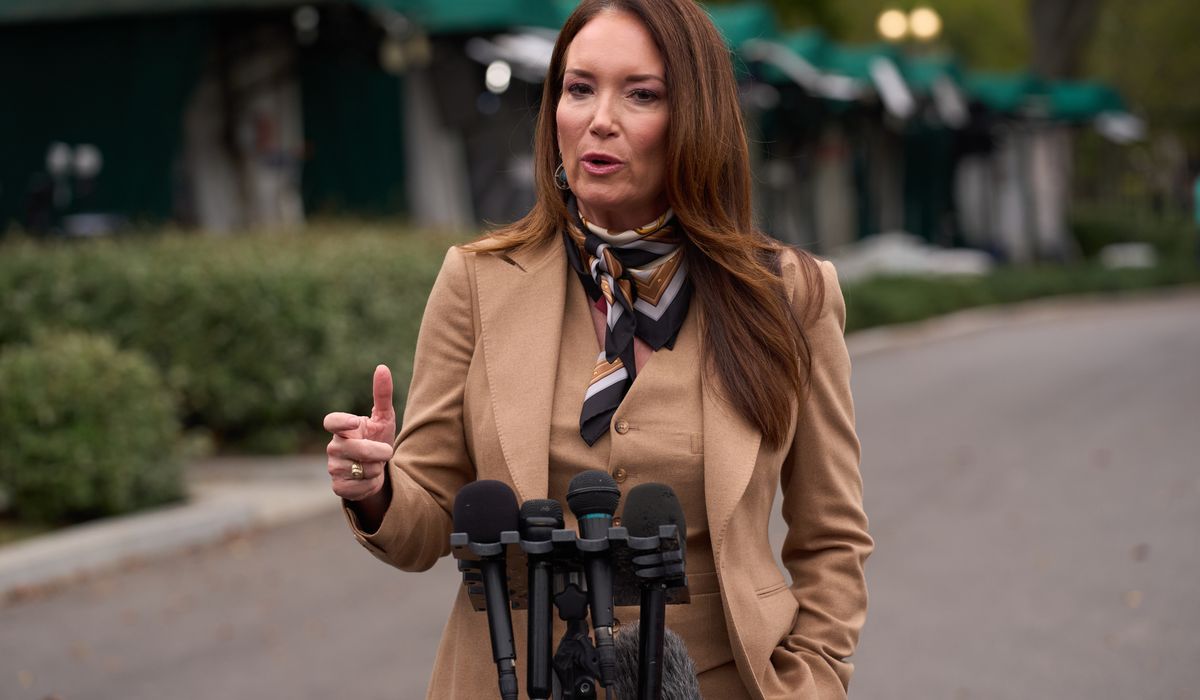


The Trump administration pledged to send relief to farmers who are struggling with low crop prices and high costs once the government shutdown ends.
Agriculture Secretary Brooke Rollins, speaking at Thursday’s Cabinet meeting, said President Trump’s trade policies will lead to a “golden age” of prosperity for America’s farmers.
But in the near term, U.S. growers are submerged in a field of high costs that began with inflation in 2022 and got worse with tariff-induced increases this year, necessitating relief from Washington.
“We’ve got to get the government reopened so that we can move forward on that,” Ms. Rollins said. “Once we do, we’ll be able to move out a significant program to help our farmers.”
A White House official said the aid package is on hold during the shutdown because many of the employees who would consult on or execute the policy are furloughed.
Mr. Trump and Ms. Rollins have suggested they could use tariff revenue to fund the aid.
Farmers say they’d rather sell their products to new markets than receive another handout from Washington.
Ms. Rollins agreed.
“Long term, we have to change this hamster wheel of government. We’ve got to ensure that farmers have the market to sell,” she said.
For weeks, the Trump administration has been assessing whether it needs to send financial aid to farmers, akin to bailout packages that the president orchestrated during the trade wars of his first term.
Soybean farmers, in particular, are panicking over the lack of Chinese buyers.
The U.S. used to be the provider of choice for China. Yet the communist country’s buyers are turning to sellers in Brazil because of trade tension and reciprocal tariffs that kicked in this year.
China recently bought multiple cargoes of soybeans from Argentina even as the U.S. moved to bail out the South American country and its conservative leader, President Javier Milei, a Trump ally who is leading free-market reforms.
The president said he would work with Chinese President Xi Jinping to reopen market access.
Mr. Trump is set to meet the Chinese leader at the Asia-Pacific Economic Cooperation summit in South Korea this month.
“We’re going to see more and more opening up,” Mr. Trump said.
Yet Mr. Xi appeared to play hardball ahead of the meeting by stiffening curbs on rare-earth exports on Thursday. That mineral trade has been a sticking point in U.S.-China talks this year, and Mr. Trump said he was still trying to digest the news.
“I haven’t been briefed on it,” he said at the Cabinet meeting before insisting the U.S. has leverage on trade. “We import from China massive amounts, and maybe we’ll have to stop doing that.”
While farmers might be losing patience, the White House is blaming former President Joseph R. Biden for woes in the heartland.
Mr. Trump pointed to the phase one agreement he struck with China in 2020, a year upended by the COVID-19 pandemic.
After his election loss in 2020, the deal “just sat there for four years, and they didn’t adhere to the agreement,” Mr. Trump said. “Every problem the farmer has is because Biden didn’t do anything for four years.”
The administration says better days are ahead.
Mr. Trump is securing trade pacts that will open markets such as Britain and Japan while his team considers new aid as a bridge for farmers.
“The farm economy is in a very uncertain time, but that isn’t because of the current trade negotiations — although certainly the China part is part of that,” Ms. Rollins said. “We inherited a slew of issues.”
The secretary said the U.S. will eventually move into an “era of rural prosperity, of a golden age for farmers in rural America.”
She added, “The trade renegotiations and the trade realignment is unlike anything that’s happened in the history of our country, and those that will benefit the most are the original Americans — our farmers and our ranchers.”
• Tom Howell Jr. can be reached at thowell@washingtontimes.com.
